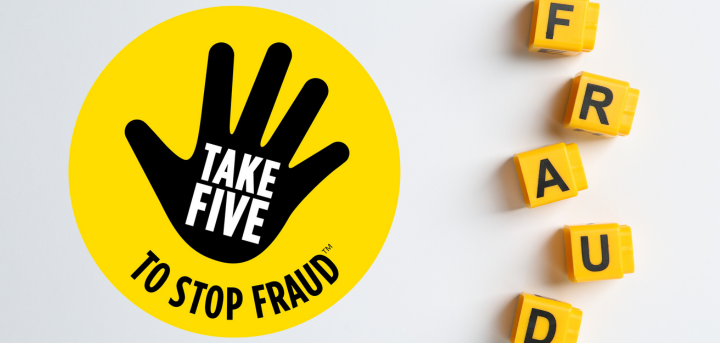How to stay safe from fraud

Published on 09 December 2024 08:00 AM
With millions of pounds stolen by criminals through fraud each year follow Take Five's Stop Fraud Tips to help you spot scams.
Have you ever received an urgent call from someone claiming to be from your bank? They might have explained that your account is at risk, and you need to move money into a ‘safe account’. They start asking for your personal and financial information, but you get that gut feeling that something’s not right. You hang up and call your bank on a number you trust and find out it wasn’t them that called.
Criminals may try and trick you into sending money directly from your account and the ’safe account’ scam is one of many ways in which they might do this. They try to manipulate you and impersonate trusted organisations and people to try to get you to part with your personal or financial information. Being tricked into sending money this way is called Authorised Push Payment (APP) fraud.
The four most common APP scams are:
- Purchase fraud, where criminals pretend to sell things that don’t exist.
- Impersonation fraud, when a criminal claims to be someone from a bank, the police or another trusted organisation to steal money.
- Investment fraud, where you’re convinced to move your money into a fictitious fund or to pay for what later turns out to be a fake investment.
- Romance fraud, this is where criminals use a fake dating profile to start a relationship with you and then ask for money.
Criminals spend hours researching you for their scams, hoping you’ll let your guard down for just a moment. They also try to create a sense of urgency. They might pose as someone you trust such as your bank, the government, HMRC, the police or even a loved one.
But you can protect yourself – just remember Take Five’s 3 easy steps to keeping safe from fraud when faced with these requests:
- STOP: Take a moment to stop and think before parting with your money or information. It could keep you safe.
- CHALLENGE: Ask yourself - could it be fake? It’s ok to reject, refuse or ignore any requests. Only criminals will try to rush or panic you.
- PROTECT: Contact your bank immediately if you think you’ve been scammed and report it to Action Fraud at actionfraud.police.uk or on 0300 123 2040.
You can also follow our top tips:
- Genuine organisations will never try to rush or panic you. You can always hang up and call the company they’re claiming to be from on a number you know to be true.
- If you’re online shopping and a deal sounds too-good-to-be-true, it probably is!
- The police will never ask you to help with an undercover investigation.
- Never give anyone remote access to your computer following a cold call or unsolicited message.
- HMRC will never threaten arrest and any offers of tax refunds or requests for financial information should be treated with caution.
- Never give money to anyone you’ve met through an online dating service or have only met a few times.
Scam Bingo!
Now that you know some of the key tactics criminals use, why not try playing our easy-to-use game, Scam Bingo! It aims to educate people on the common scam types and help support them in protecting themselves from fraud and scams. So, grab some friends or family and give it a go!
